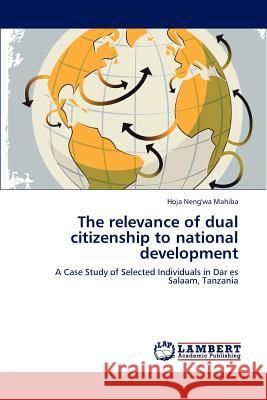The relevance of dual citizenship to national development » książka
The relevance of dual citizenship to national development
ISBN-13: 9783659251610 / Angielski / Miękka / 2012 / 100 str.
Dual citizenship is claimed to be a common phenomenon in the contemporary world. This is claimed to be manifested in the rapid acceptance and increase of the number of people who have been accorded dual citizenship throughout the world in the past decades. About half of all sovereign states in the world nowadays accept it for various reasons. Currently, in Tanzania, dual citizenship has been associated with development. Some people argue that dual citizenship has nothing to do with development, while others assert that it can facilitate development. This work investigated the relevance of dual citizenship to national development. The study was carried out in the Dar es Salaam region. Data was collected through documentary survey; both structured and unstructured interviews as well as questionnaires were employed. The study reveals that, following the global changes accompanied by the transnational of people, dual citizenship is unavoidable due to its relevance to national development. However, the limitless possibilities and advantages of dual citizenship must be balanced. On the other hand, the threats and problems posed by dual citizenship have to be considered by member states
Dual citizenship is claimed to be a common phenomenon in the contemporary world. This is claimed to be manifested in the rapid acceptance and increase of the number of people who have been accorded dual citizenship throughout the world in the past decades. About half of all sovereign states in the world nowadays accept it for various reasons. Currently, in Tanzania, dual citizenship has been associated with development. Some people argue that dual citizenship has nothing to do with development, while others assert that it can facilitate development. This work investigated the relevance of dual citizenship to national development. The study was carried out in the Dar es Salaam region. Data was collected through documentary survey; both structured and unstructured interviews as well as questionnaires were employed. The study reveals that, following the global changes accompanied by the transnational of people, dual citizenship is unavoidable due to its relevance to national development. However, the limitless possibilities and advantages of dual citizenship must be balanced. On the other hand, the threats and problems posed by dual citizenship have to be considered by member states











